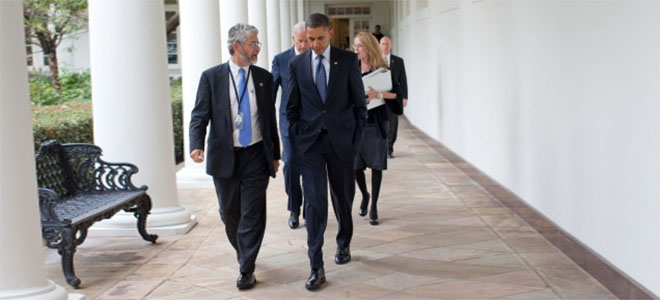Science Advice to Governments
Bridges, Volume 41
October 2014
by Roger Pielke, Jr.
Globally, governments have incredible access to expertise. Some of these experts work directly for governments, while others are found in academia, in business, and in civil society. How can governments best tap into this wide array of expertise in making policy?
This important question was the backdrop for the first global conference on science advice to governments, held in Auckland, New Zealand, in August 2014. The conference focused on government science advisory mechanisms, which includes (especially in some Commonwealth nations) a Chief Scientific Advisor whose role is to support a prime minister or departmental chief.
The conference was remarkable for the participation of sitting governmental officials. Chief scientific advisors from the UK, Cuba, India, Australia, Ireland, the European Union, and Malaysia were among the participants. The meeting was hosted by Sir Peter Gluckman, chief scientific advisor to the New Zealand government, along with the International Council for Science. I also attended, and will share below some of my observations from the conference.
The meeting was important for the conversations and the network facilitated by the conference. Governance takes many different forms around the world, but one constant everywhere is the need to integrate expertise with decision making. Comparing and contrasting experiences, what works and what doesn’t, can help to make science advisory processes more effective.
For instance, in the United States the President’s science advisor is a political appointee who is also accountable to the Congress. This gives the science advisor an explicit role in helping to advance the political agenda of the president. Whether or not the president calls on the science advisor is another matter. In contrast, the UK government’s chief scientific advisor is not a political appointee and serves a term appointment that may span multiple governments. Clearly there are strengths and weaknesses to each approach, although they represent different approaches to democratic governance.
One point discussed at the conference involved the desirability of having a centralized science advisory mechanism at the highest levels of government. For instance, the UK has a chief scientific advisor, but Germany does not. Yet, the German government has an impressive track record of using science in policy. I often point to the German Federal Institute for Risk Assessment as a good example of an agency that has successfully navigated the choppy waters of scientific advice.
The question about the desirability of a centralized advisory mechanism took on greater meaning at the conference when Anne Glover, CSA for the European Commission, gave a candid and heartfelt speech on her experiences as the first person in that role. Glover explained that a number of environmental NGOs had not only called for her to be fired, but also asked the Commission to scrap the CSA position altogether. Their motivation was apparently their dislike of Glover’s views on the science of genetic modification. Glover’s position, and indeed that of a European Commission’s CSA, hangs in the balance as Jean Claude Juncker assumes the EC presidency in November.
Glover’s experiences highlight a common challenge facing scientific advisors and advisory processes – a lack of clarity about their formal role in policy making. The EC CSA is new and working this out; however, other institutions don’t have that excuse. Both Dr. Raja Chidambaram, principal scientific advisor to the Government of India, and chairman of the Scientific Advisory Committee to the Cabinet, India, and Sir Mark Walport, government chief scientific advisor in the UK, presented very detailed descriptions of their roles in government. However, having a well-defined role did not prevent Walport from being criticized for his views on bees and pesticides very soon after assuming the position. Read more …


